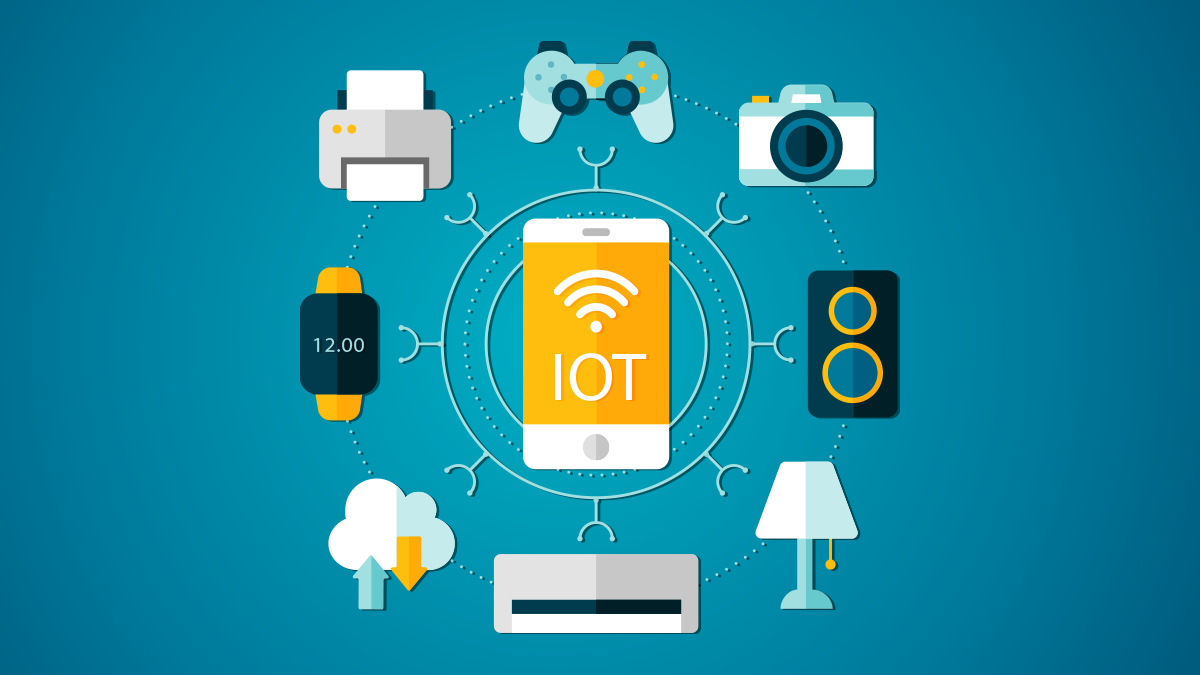In an era where the Internet of Things (IoT) is rapidly expanding, are your organizations IoT devices truly secure behind the protective walls of a firewall? Absolutely. The integration of IoT devices into our digital ecosystems presents a complex web of vulnerabilities that demand meticulous attention and proactive defense.
The proliferation of IoT devices, from smart appliances to industrial sensors, has fundamentally reshaped how we interact with technology. This transformation, however, has introduced a new frontier of security challenges. Managing these devices behind firewalls is no longer an option; it's a fundamental requirement for safeguarding sensitive data and maintaining the operational integrity of any network.
This article delves into the critical importance of monitoring IoT devices within a firewall-protected environment. It will illuminate the specific challenges encountered, provide effective solutions, and outline best practices for robust security implementation. By the end of this exploration, you will possess a comprehensive understanding of how to secure your network while harnessing the power of IoT technology.
- Apollonia Kotero From Purple Rain Star To Music Icon Beyond
- Is Enrique Iglesias Gay Examining The Rumors His Life
In order to address the core topic, here's a table summarizing the key areas of focus within this guide:
| Section | Topic | Key Takeaway |
|---|---|---|
| Introduction to IoT Devices | Understanding the Basics of IoT | Overview of IoT devices, their functions, and their role in various industries. |
| Why Firewalls Are Essential for IoT Security | The Importance of Firewalls | The crucial role firewalls play in protecting IoT devices and the network. |
| Challenges of Monitoring IoT Devices Behind Firewalls | Identifying the Hurdles | The specific difficulties encountered when monitoring IoT devices in a firewall-protected environment. |
| Solutions for Effective IoT Monitoring | Implementing Security Measures | Software-based tools, hardware appliances, and system designs. |
| Best Practices for Secure IoT Deployment | Deployment of Secure Devices | The practices include updates, authentication, and monitoring. |
| Top Tools for IoT Monitoring | Tools | The most popular tools for IoT monitoring. |
| Data Security and Privacy Considerations | Data Protection | Measures to protect the data and privacy. |
| Network Architecture for IoT | Network Design | Optimizing network architecture for secure IoT device operations. |
| Case Studies: Successful IoT Deployments | IoT Deployments | Examples of successful IoT implementations. |
| Future Trends in IoT Security | Future | What we can expect to see in the future. |
Introduction to IoT Devices
The Internet of Things (IoT) represents a vast network of interconnected devices, each designed to collect and exchange data. These devices range from everyday items like smart home appliances to sophisticated industrial sensors, all aimed at enhancing efficiency and connectivity. The sheer number of IoT devices introduces significant security challenges, particularly within the confines of corporate networks.
Securing IoT devices behind firewalls requires specialized monitoring. Comprehending the fundamental principles of IoT technology is the first step in preparing for the unique security requirements of these devices.
- Remembering Amanda Peterson Her Life Legacy In Hollywood
- Ryan Paevey The Hallmark Heartthrob Bio Movies More
The section explores the core aspects of IoT devices:
- The functionality of IoT devices and their operational principles.
- Examples of how IoT is applied across various industries.
- The criticality of monitoring IoT devices for network security.
Key Characteristics of IoT Devices
IoT devices are distinguished by their ability to connect to the internet and communicate with other devices. This connectivity enables them to perform a variety of tasks, including data collection, automation, and real-time monitoring. However, this also exposes them to potential cyber threats, making secure deployment a necessity, rather than a luxury.
Why Firewalls Are Essential for IoT Security
Firewalls stand as the first line of defense in protecting networks from unauthorized access. Within the context of IoT devices, firewalls are instrumental in ensuring that only legitimate traffic is permitted to traverse the network. Through firewall implementation, organizations construct secure environments, allowing IoT devices to operate without compromising overall network security.
Here, we will examine the importance of firewalls in the context of IoT security.
- The role of firewalls in ensuring robust IoT security.
- Firewall traffic filtering and malicious activity blocking.
- The importance of configuring firewalls tailored for IoT devices.
Types of Firewalls for IoT
There are various types of firewalls available to secure IoT devices, each with unique capabilities and applications.
- Network firewalls
- Application firewalls
- Cloud-based firewalls
The most appropriate choice depends on the specific needs and infrastructure of an organization.
Challenges of Monitoring IoT Devices Behind Firewalls
Monitoring IoT devices within a firewall-protected network presents a series of complex challenges. These include limited visibility into device activity, the complexity of managing numerous devices, and the necessity for real-time data analysis. Organizations must address these hurdles to effectively monitor and safeguard their IoT ecosystems.
Here are some key challenges:
- Insufficient visibility into the activity of individual devices.
- The difficulty of managing large numbers of IoT devices.
- Ensuring adherence to industry regulations.
Overcoming Visibility Issues
To mitigate visibility issues, organizations can deploy advanced monitoring tools. These tools provide real-time insights into device activity, enabling the identification of potential threats and ensuring devices function as intended.
Solutions for Effective IoT Monitoring
A number of effective solutions exist for monitoring IoT devices behind firewalls. These range from software-based tools to specialized hardware appliances, each designed to address specific security needs. The selection of the appropriate solution can significantly enhance an organization's ability to monitor and protect its IoT devices.
Some effective solutions include:
- Network monitoring software
- Device management platforms
- Security information and event management (SIEM) systems
Implementing a Centralized Monitoring System
A centralized monitoring system provides a single point of control for managing all IoT devices. This approach simplifies the monitoring process and ensures consistent security policies across the entire network.
Best Practices for Secure IoT Deployment
The implementation of best practices is crucial for securing IoT devices behind firewalls. These include regular updates, the use of strong authentication methods, and comprehensive monitoring. By adhering to these guidelines, organizations can minimize the risk of cyberattacks and ensure the safe operation of their IoT devices.
Key best practices include:
- Regularly updating firmware and software.
- Using strong authentication methods.
- Monitoring device activity in real-time.
Regular Security Audits
Periodic security audits are essential for identifying vulnerabilities and ensuring the continued effectiveness of security measures. These audits should evaluate both the devices themselves and the underlying network infrastructure.
Top Tools for IoT Monitoring
Several tools are available for monitoring IoT devices behind firewalls. These tools offer features such as real-time alerts, detailed reporting, and automated responses to security incidents. Selecting the right tool can greatly enhance an organization's ability to monitor and protect its IoT devices.
Here are some popular tools:
- Wireshark
- Prometheus
- Graylog
Choosing the Right Tool
When selecting a monitoring tool, organizations should consider factors such as scalability, ease of use, and integration capabilities. These factors ensure the chosen tool aligns with the specific needs of the organization and its existing infrastructure.
Data Security and Privacy Considerations
Data security and privacy are paramount considerations when monitoring IoT devices behind firewalls. Organizations must ensure that sensitive data is shielded from unauthorized access and that all relevant privacy regulations are strictly adhered to. By implementing robust security measures, organizations can protect their data and maintain compliance with industry standards.
Here are key considerations:
- Encrypting data both during transmission and while at rest.
- Implementing access controls and permissions.
- Complying with all relevant data protection regulations.
Compliance with GDPR and CCPA
Organizations must ensure that their IoT monitoring practices are fully compliant with data protection regulations, such as GDPR and CCPA. These regulations require organizations to implement specific measures to protect personal data and empower individuals with control over their information.
Optimizing Network Architecture for IoT
Optimizing network architecture is crucial for ensuring the secure operation of IoT devices behind firewalls. This involves designing networks that can accommodate the unique requirements of IoT devices while maintaining security and performance. By optimizing network architecture, organizations can enhance their ability to monitor and protect their IoT devices.
Key strategies include:
- Segmenting networks to isolate IoT devices.
- Implementing secure communication protocols.
- Monitoring network traffic for anomalies.
Network Segmentation
Network segmentation involves dividing a network into smaller, isolated subnetworks to improve security and performance. By isolating IoT devices on separate segments, organizations can reduce the risk of cyberattacks and ensure efficient device operations.
Case Studies
Numerous organizations have successfully implemented IoT monitoring solutions behind firewalls, demonstrating the benefits of secure IoT deployment and providing insights into best practices. These case studies showcase practical applications and successful strategies.
Case studies include:
- A manufacturing company that improved operational efficiency through IoT monitoring.
- A healthcare provider that enhanced patient care using IoT devices.
- A retail chain that optimized inventory management with IoT technology.
Lessons Learned
Organizations can gain valuable lessons from these case studies, particularly regarding the importance of security, scalability, and user experience in IoT deployments. These lessons can inform future implementations and ensure successful outcomes.
Future Trends in IoT Security
The future of IoT security is being shaped by emerging technologies and the evolution of cyber threats. Organizations must remain informed about these trends to ensure their IoT deployments remain secure and effective. The key trends include:
- Artificial intelligence and machine learning for threat detection.
- Quantum cryptography for secure communication.
- Edge computing for improved performance and security.
Preparing for the Future
To prepare for the future, organizations should invest in cutting-edge technologies and continually update their security strategies. By staying ahead of emerging trends, organizations can ensure the long-term success of their IoT deployments.
Sources:
- IEEE - Internet of Things Journal
- Forrester Research - IoT Security Report
- Gartner - IoT Trends and Predictions
- Aida Turturro From The Sopranos To Today A Look At Her Career
- I Am Shauna Rae Season 3 What To Expect Where To Watch

